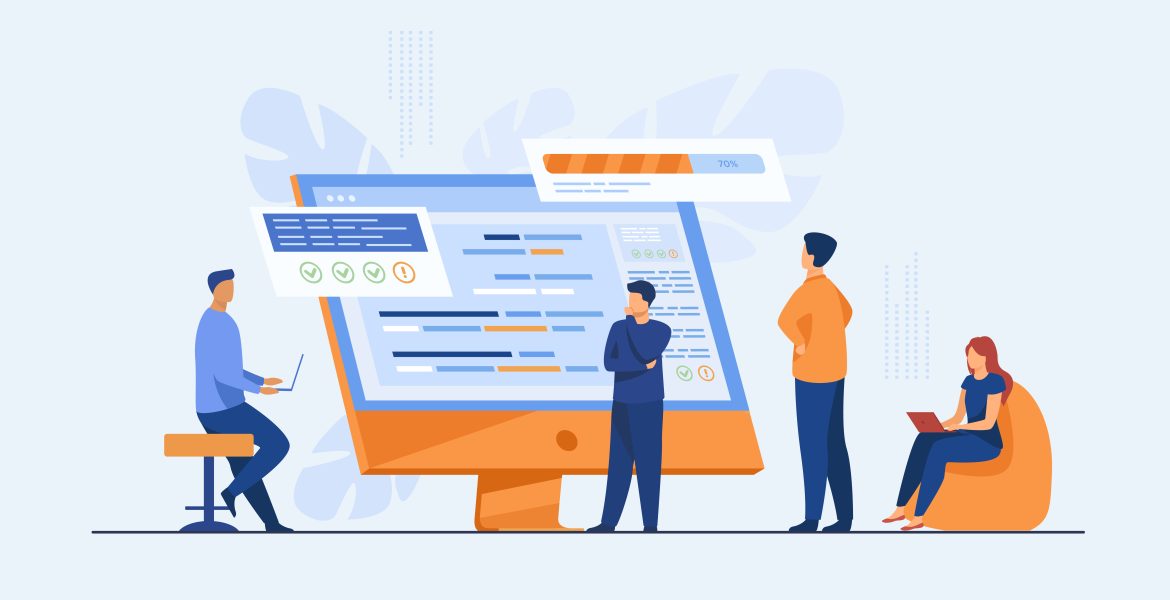
SAP Training
Introduction of SAP:
SAP was developed by German technology company SAP SE to assist businesses manage their data, operations and finances more effectively. As one of the premier enterprise resource planning (ERP) platforms. The SAP Course covers the fundamentals of SAP systems and applications in an intensive yet structured program of modules, lectures and hands-on activities designed to strengthen student knowledge and abilities. This course includes both lectures and hands-on sessions on configuring and using the system, giving participants experience in using graphic user interfaces as well as creating organizational structures from scratch. At its heart lies SAP modules. These modules cover topics including finance and accounting, sales and distribution, production planning, materials management and business intelligence. Students learn to utilize these modules effectively for creating business processes while efficiently maintaining customer relations.
Once all modules have been covered, the course progresses onto advanced topics like optimization, data migration and system integration. Participants learn how to utilize software programs that give them greater control of their organization’s resources and operations. At the conclusion of each course is the SAP Certification Exam – an comprehensive test designed to measure student knowledge and abilities regarding software functions and features. Students enrolled in SAP courses also are assessed on their ability to put into action what they have learned during class in real-life scenarios, providing a firm foundation on which to build careers within this industry.
The SAP Course offers comprehensive program that provide strong foundation for those wanting to use software applications effectively for business operations management purposes and expand careers further within it. These courses equip students with the skills needed to use software effectively in order to increase productivity, enhance performance and streamline processes. These courses provide a deep dive into the data models and business logic that comprise software applications, as well as how to configure and utilize its various modules to accomplish specific tasks. Advanced courses give participants a deeper knowledge of the software, exploring its capabilities in greater depth; for instance, by creating customized reports or dashboards; using it with other systems for integration purposes or automating processes.
Some courses cover particular challenges faced by industries and provide tailored solutions for meeting those challenges. These modules enable the software to access, interpret and analyze information from various sources for greater insight and more informed decision-making. With such knowledge graduates become qualified to work as SAP applications consultants or system administrators; or go further into further study within particular fields within SAP.
Overview:
SAP can assist organizations to streamline business processes and automate common tasks to reduce operational costs and enhance efficiency, ultimately improving productivity. Students will gain an understanding of all components in SAP solution portfolio and identify business needs to develop processes accordingly; additionally they’ll learn about module functions which support processes as well as learn what processes each one supports – this course covers specific system components like data/information management/workflows/security.
Students will also gain the necessary tools for crafting customized reports, dashboards and scorecards as well as effectively collaborate with IT professionals in making data-informed decisions that advance company performance. Alongside an introduction to SAP, additional topics may include deployment/implementation issues such as troubleshooting/troubleshooting issues scalability/managing changes within systems scalability issues as well as best practices regarding deployment administrating/maintenance etc.
After successfully completing this course, students will be equipped with the knowledge needed to successfully integrate SAP into existing systems and workflows while managing changes and enhancements. SAP is an enterprise resource planning (ERP) platform used by organizations to store, analyze, share and collaborate on data related to products, customers, vendors and suppliers across their entire operation – from financials through CRM/HR/production planning/SCM to warehouse management/warehouse inventory control management/warehouse monitoring – SAP covers them all! Furthermore it includes HANA Business Objects/and SAP BW/4HANA for business intelligence/analytic tools!
An extensive understanding of SAP course material helps build IT capabilities and can improve business performance. Learners in this SAP course are exposed to all components of SAP system, from its Business Suite components and NetWeaver Platform capabilities, through to HANA Platform components and HANA Data Library components. Learners will also become acquainted with the tools and techniques utilized for implementing, deploying, and managing SAP’s Business Suite and HANA Platform. In addition, learners are introduced to topics like programming in ABAP (R/3, CRM and SRM), transportation management and supply chain management; SAP HANA Decision Service Management capabilities as well as SAP Analytics Cloud will also be covered during this SAP course.
Requirements for SAP Course:
This SAP course provides an in-depth education for anyone wishing to understand enterprise resource planning (ERP). This course covers various facets of ERP such as business process design and implementation, data modeling/analysis/system integration/security risk management/reporting. Begin this course, individuals should possess a thorough understanding of operating systems, database management, client/server architectures and computer programming; also possess technical and analytical abilities necessary for solving real world business problems with innovative solutions. These tasks include designing the database architecture of an organization, configuring and customizing SAP modules to suit unique business requirements and writing custom software apps. As well as studying SAP environments, students must also gain an understanding of the technologies and processes utilized by organizations for managing and analyzing large volumes of data – this may include data warehouse design, security measures for stored information, mining techniques as well as visualization software tools.
As they progress through the program, students gain opportunities to apply their knowledge in practical scenarios; such as creating and executing a business intelligence project. By the conclusion of their program, students will possess a comprehensive knowledge of all features, components and functionalities within an SAP environment and will have learned how to design and develop solutions using its products – one of the main requirements for participating in any SAP course. With an in-depth knowledge of all topics and concepts taught, one will possess all of the qualifications to become a successful SAP consultant. SAP SE offers software products designed to assist businesses manage their operations more effectively; using tools for planning, controlling, monitoring and reporting operations is its hallmark feature.
Many types of SAP courses are available; however, in order to receive certification they must fulfill certain criteria.
The SAP Certified Associate program is an online learning system which equips its participants with key concepts and technical principles of SAP.
1. An SAP ABAP Certification will equip you with the ability to customize applications according to organizational needs.
2.To enroll in the SAP Business Solutions Solutions Architecting Fundamentals course. This will equip participants with knowledge on architecture, design and build of custom solutions as well as SAP products and processes. Furthermore, completion of an SAP HANA Certification will give insight into its architecture as well as business applications utilizing it and associated data models.
3.To take the SAP Enterprise Information Technology (EIT) Certification.
4.You should earn the SAP Business Intelligence Certification. This credential can assist in understanding and applying S/4HANA Business Intelligence’s functional and technical capabilities as well as provide skills necessary for designing, implementing, managing data warehouses, data marts, cubes or any other data sources.
5.This certification equips participants with the skills and knowledge required to manage and optimize HCM processes within SAP.
6.The final requirement to become an SAP Associate Level Exam participant is passing the SAP Associate Level Exam, which serves to test your comprehension of key SAP components such as concepts, functions, applications and technology.
Individuals and organizations seeking SAP certification often opt for only part of it – this allows them to gain basic understanding without making commitments at every step. But for an authentic SAP experience, all requirements listed must be fulfilled.







